
Touch Your Head to Your Toe
(yes it’s possible!)
Achieve the stunning feat of flexibility that many assume impossible – the Head-to-Toe. Our methods have unlocked this range for hundreds of adults since we introduced them 7 years ago – and are now compiled for the first time into an easy-to-follow program!
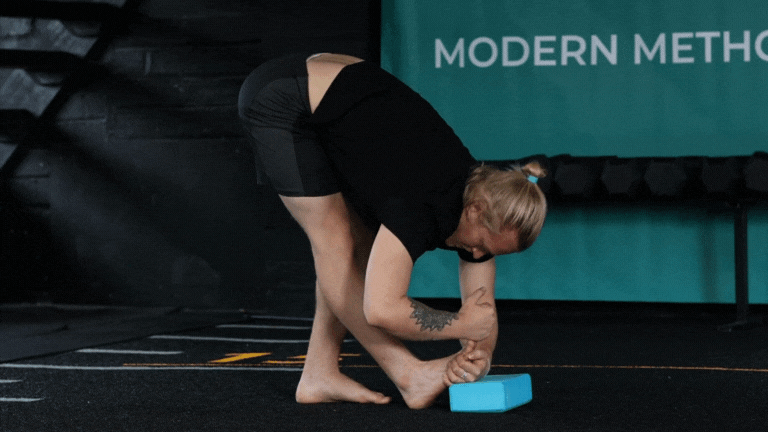
What is the Head to Toe? And why learn it?
The head-to-toe stretch is rooted in Chinese martial arts, where it was used as a test of dedication and simultaneously developed unrivaled kicking range-of-motion. Other disciplines such as dance and rhythmic gymnastics use this shape as crowd-pleasers. While the full standing split won’t be relevant for people outside of these disciplines, we believe hamstring flexibility to be a key asset in athletics, injury-prevention, and core to comfortable everyday mobility. With that in mind, working toward the head-to-toe is like riding a train with many stops along the way. The final stop being the standing split, but with the stops before arriving at many worthwhile range-of-motion benefits.
But if you ride the train far enough, you’ll also gain epic proof of your flexibility, like our M3 clients here:
Get the Fabled Head to Toe
4 Phases
These 4 phases are designed to meet you at your current range-of-motion, and progress you towards your first head-to-toe touch. The latter phases build on that towards the next level – the standing split!
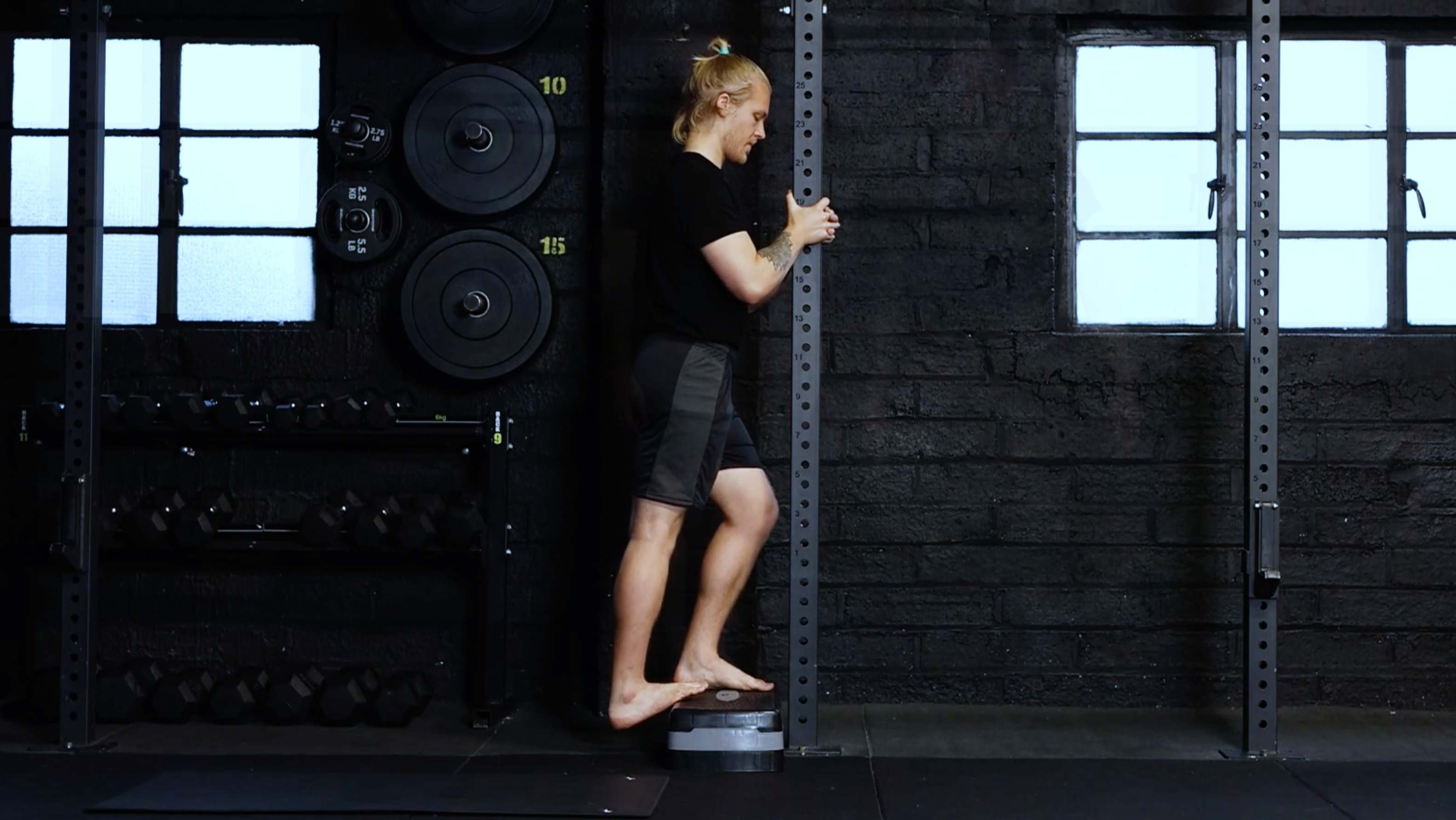
Phase 1
For those who can’t yet do the head-to-toe, the first phase introduces the methods from M3 used, comprehensively identifying the weak links in your mobility in this range.
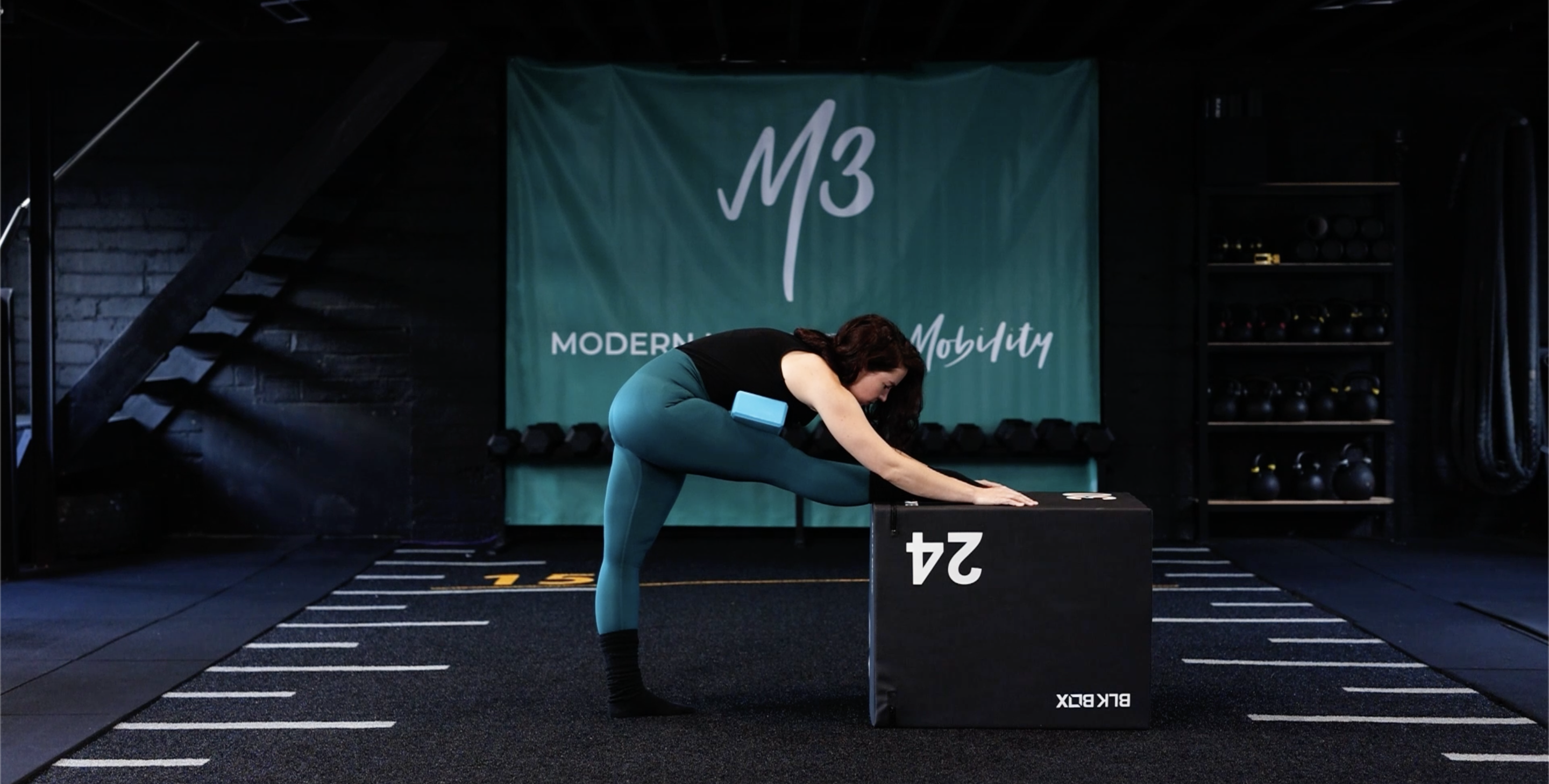
Phase 2
The second phase conditions your body with added volume to elicit the neurological and physiological changes that must occur to achieve the head-to-toe.
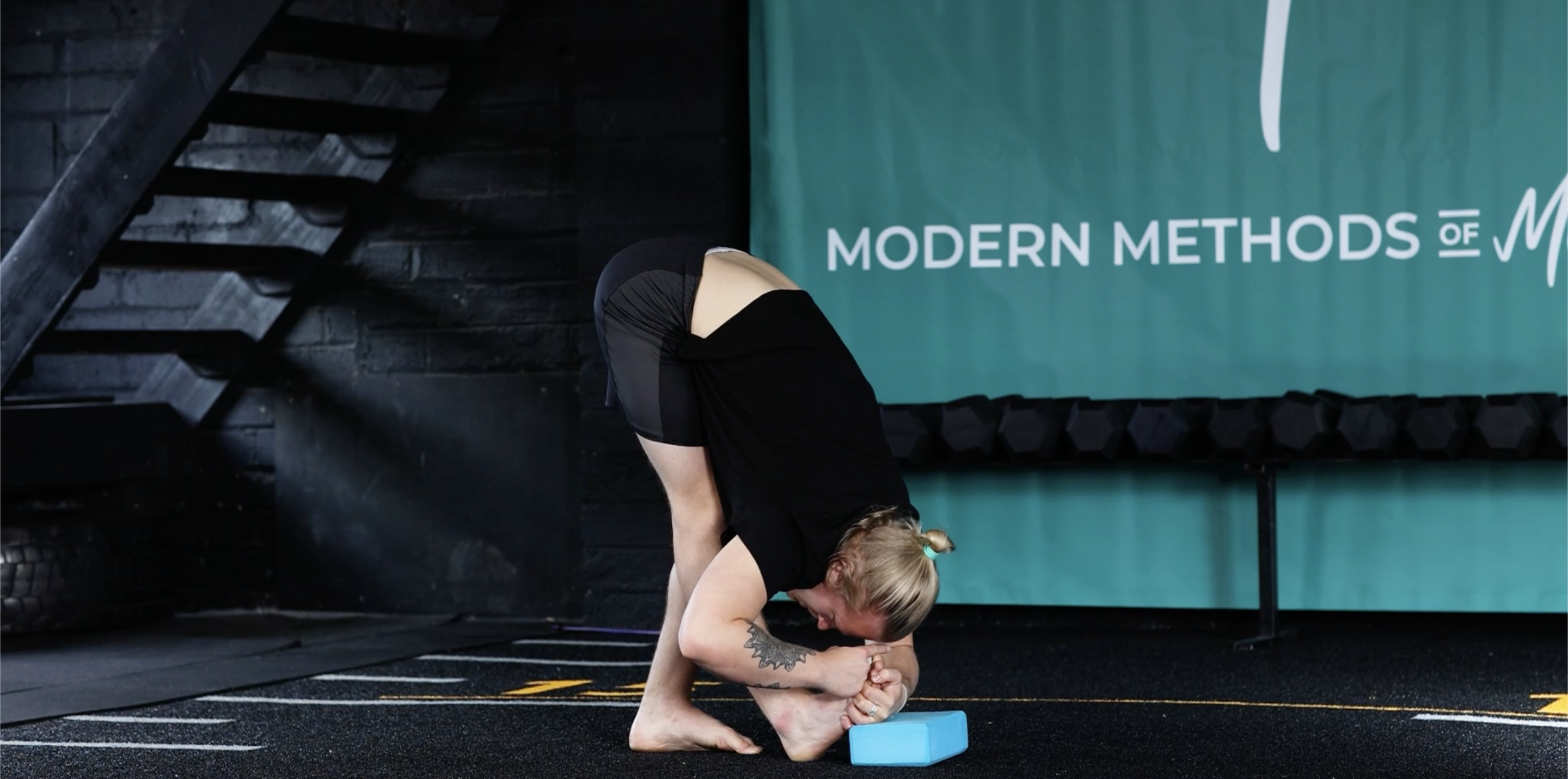
Phase 3
By this third phase, you’ll have achieved the basic head-to-toe. This phase evolves the shape into the advanced head-to-toe, further improving your flexibility.
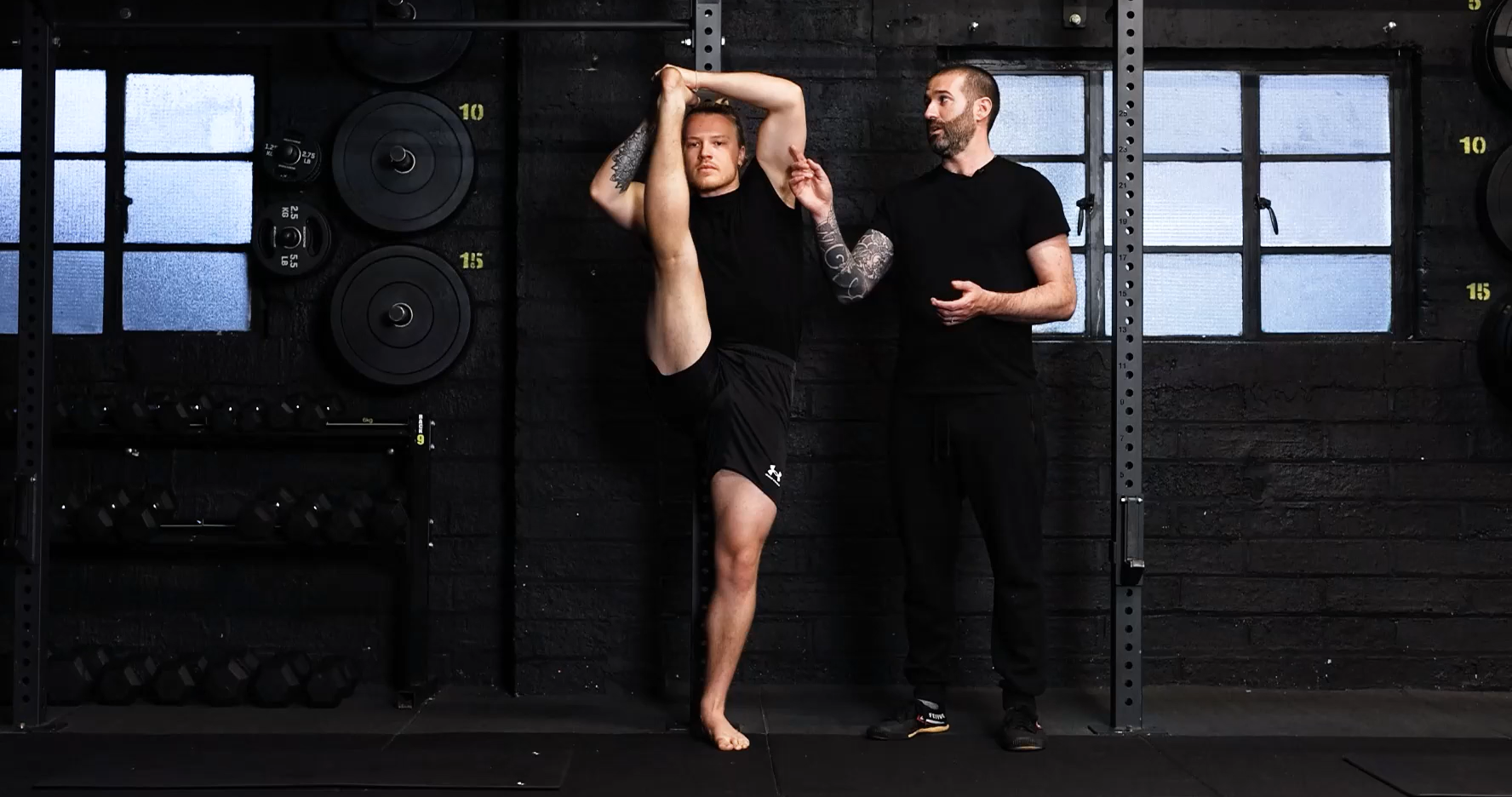
Phase 4
The final phase takes your now extraordinary flexibility, and applies it to the legendary standing split shape.
What You Get
Access the Head-to-Toe online program in our Members Area. Unlike other online programs, which often end up being just a few YouTube videos or a DIY Excel Spreadsheet – with M3 you get desktop and mobile optimized online programs with video tutorials and written reference material. And for ease of access at the gym, you can download interactive PDFs of the training templates which link to the online exercise library videos.
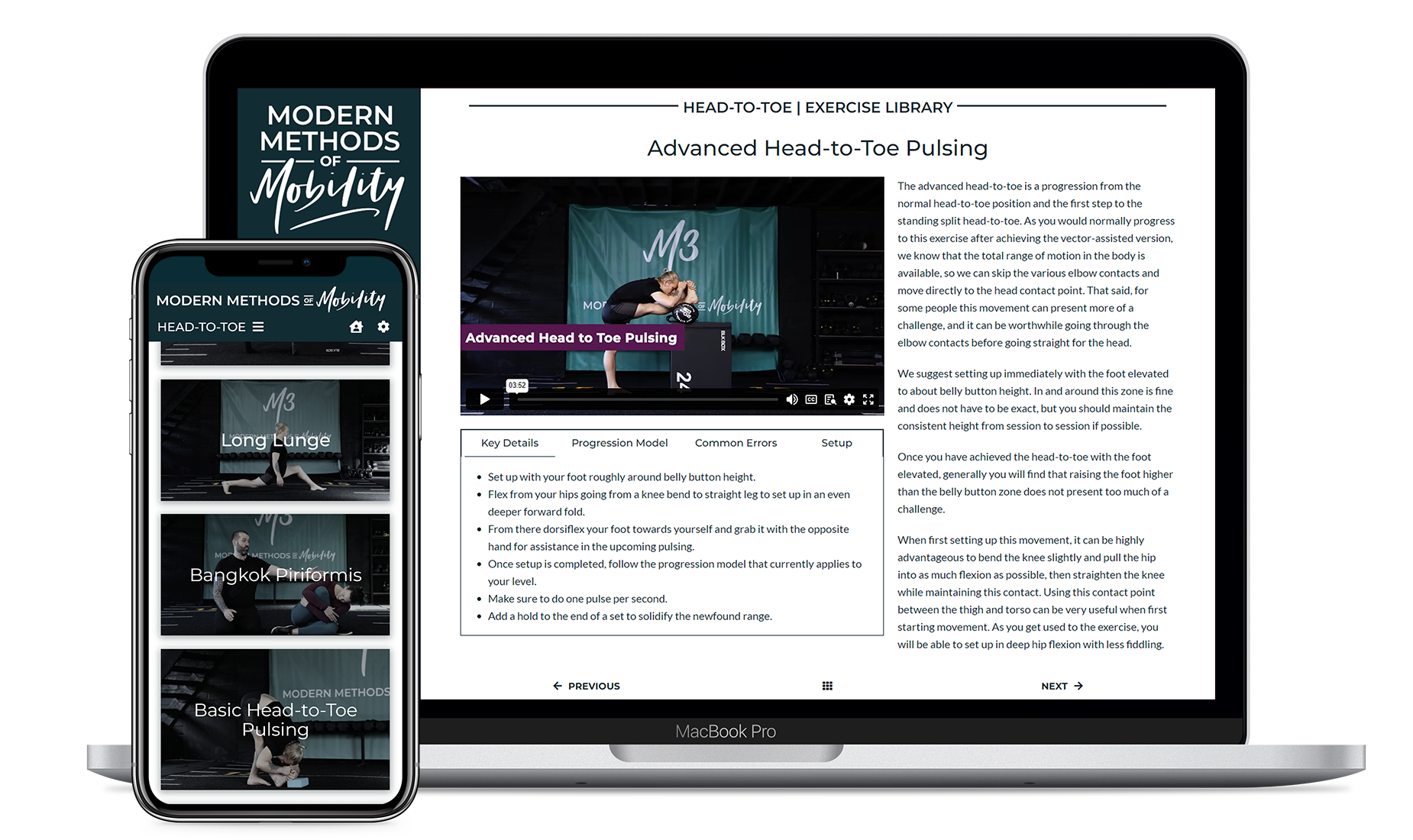
What Makes M3 Different?
The M3 System avoids the dogma of other training methods by taking bigger picture view of flexibility development and reconciling all the conflicting information about correct flexibility training. It focuses on finding what works for the person doing the training versus having a one size fits all approach. We believe strongly that anybody can develop exceptional flexibility with the right combination of correct methods and consistent training.
You can learn more about the philosophy and nuances of the Modern Methods of Mobility here:

“I can’t believe how quickly Emmet’s Head-to-Toe program worked for me! Having started from the minimum flexibility requirements, it took me 42 days to touch my head to my toe. Stretching one leg at a time and focusing on stretching by pulsing, or bouncing, with a task for my body to do – first touching my elbow to my toe, then my head to my toe – was the first time I ever felt like I was making significant progress with my hamstring flexibility. I would highly recommend this program to anyone interested in developing lasting hamstring flexibility.”
– Joshua Lee @joshie.lee
FAQ
This program requires less equipment than our other M3 programs. All you’ll need is a set of stairs and a yoga block for some of the exercises.
Emmet has expanded the scope from his previous head-to-toe programming. It now includes additional stretches to address common sticking points. This is also the first time he’s outlined how to progress the basic head-to-toe to the standing split! Even if you’ve trained Emmet’s past head-to-toe programming, there’s new content here we think you’ll appreciate!
There are a variety of levels within our programs assigned by the results of the program self assessments. We recommend that you train the level you can perform without pain, which might change depending on the state of your body. While everyone’s physical state is unique, hopefully over time you level-up through our programs and your pain becomes more manageable. If any particular exercise causes pain, you are always welcome to modify the program by training an earlier progression or skipping it entirely.
Yes, we discuss how to include the M3 Programs into your current training routine. We discuss a variety of ways to accommodate busy schedules, avoiding overtraining, and keep you from compromising your other fitness goals to incorporate our programming.









